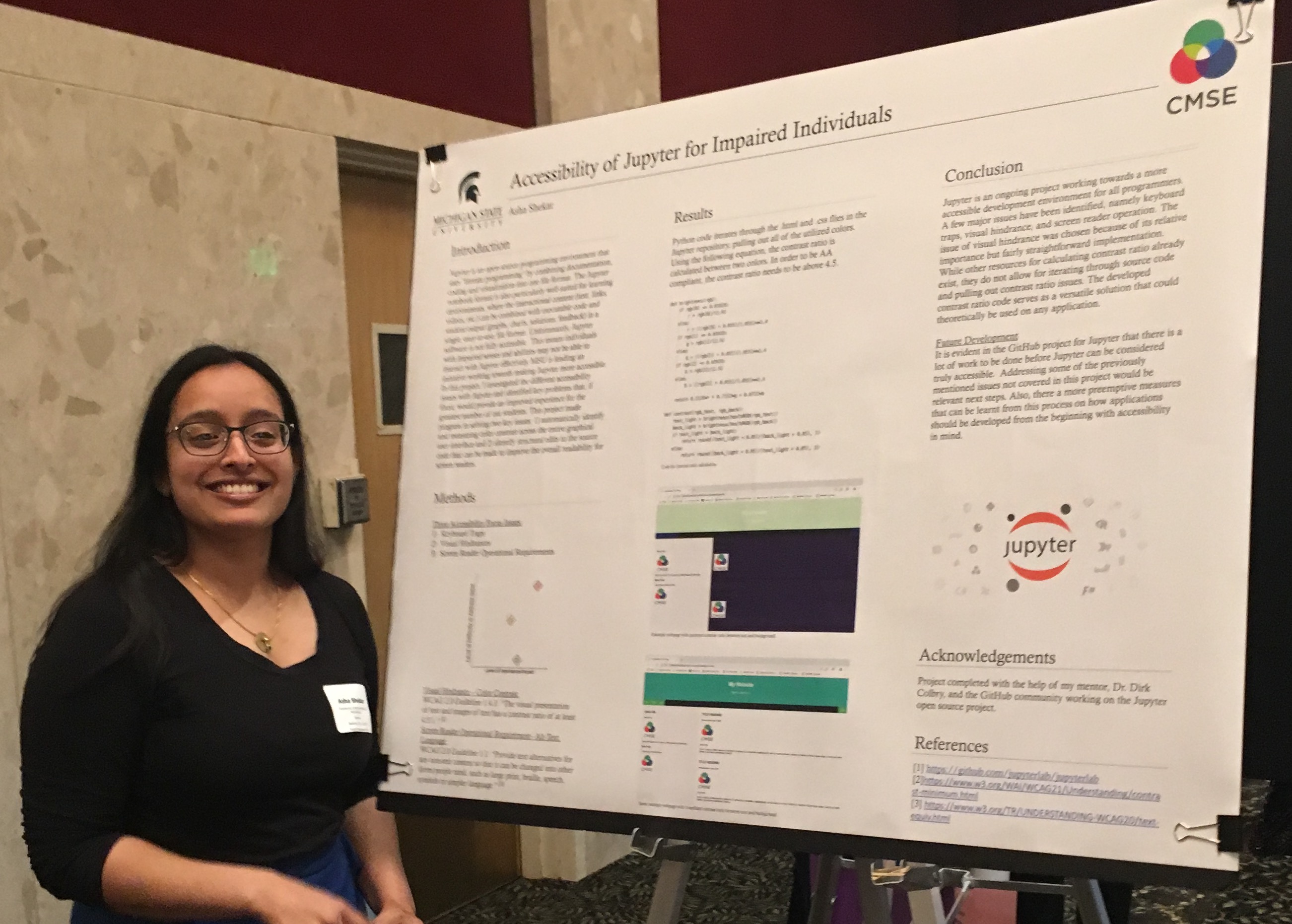Accessibility of Jupyter for Impaired Individuals
Fri 05 April 2019 by Dr. Dirk Colbry
This poster presents work by CMSETech Intern, Ahsa Shekar and her work on finding ways to make Jupyter More accessible.
Abstract
Jupyter is an open-source programming environment that uses "literate programming" by combining documentation, coding and visualization into one file format. The Jupyter notebook format is also particularly well-suited for learning environments, where the instructional content (text, links, videos, etc.) can be combined with executable code and student output (graphs, charts, solutions, feedback) in a single, easy-to-use, file format. Unfortunately, Jupyter software is not fully accessible. This means individuals with impaired senses and abilities may not be able to interact with Jupyter effectively. MSU is leading an initiative working towards making Jupyter more accessible. In this project, I investigated the different accessibility issues with Jupyter and identified key problems that, if fixed, would provide an improved experience for the greatest number of our students. This project made progress in solving two key issues; 1) automatically identify and measuring color contrast across the entire graphical user interface and 2) identify structural edits to the source code that can be made to improve the overall readability for screen readers.
